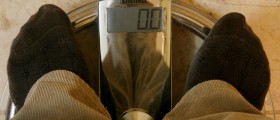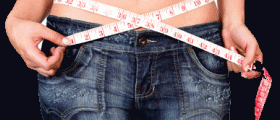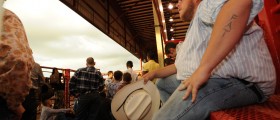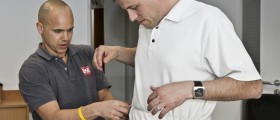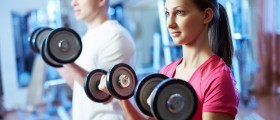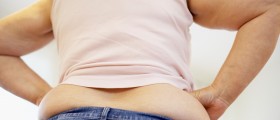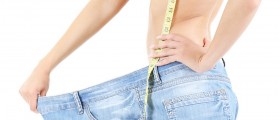One has to do with BMI and body fat measurements. I am 6'4" and
235 lbs. Crank those numbers into a BMI calculator, and one gets a
BMI index of 29 - at the high end of the "overweight" range.
Now, I'll be happy to send pics to anyone who doubts me, but seriously overweight I am not. lol. I am striving to get back to 215 lbs, which
would be a very good weight for me - I was often described as "skinny"
at that weight.
So, my question, is there any research on people who don't fit the
norms? I am, among other things, proportioned differently - long
torse, 32" inseam - one thick cylinder ( torso ) requires more mass
than two slender cylinders ( legs ), for the same height. In addition,
I am muscular and large boned.
Are there more reliable methods of determining body fat?
Which brings me to a second question - what factors influence the
popular body-fat measurement gadgets?
Thanks for any advice.
Loading...
Welcome gramps. My personal opinion of BMI is that it's not very accurate. I am also listed as borderline overweight according to BMI calcs and I'm nowhere near overweight.
The most accurate method of body fat calculation is a water immersion test. I'm sure you could google it and find additional information.
Loading...
I wholeheartedley agree. Congrats on the weight-loss and welcome to the board. (I'm brand-new myself) I am a former fat boy that has slimmed down by substituting running for weight-training (I weighed about 45 lbs. heavier last June). I am 5 ft. 8 in. and my BMI is 25.8 which means that I am "overweight." I wouldn't mind losing another 5 pounds, but no one I know agrees that I should - they don't think that I am overweight. I think the BMI is BS. Personally, I go by how my clothes fit (small clothes that is) and how well I feel when I run. If I start putting on a little weight, I feel it when I run. When I'm light, I feel like I can run forever. Well, maybe not forever, but I feel like I could just keep on running when I finish my daily 6-7 mile run (if I had the time). :D
Loading...
If being fit or getting to finishlines is your goal, then ignore the BMI tables. But if you want to really crank your race times to the highest potential you can reach, then I do think there's more than enough examples of having to shed all the extra weight you can to get in stellar racing form. That being said, those last 10 or 20 pounds to get to your "ideal" BMI might only buy you 60-seconds in a 10km, but for some people, it's worth it. You just need to determine for yourself what you feel is the best trade off between body shape and race times.
Loading...
I am 19.9 on it. Almost underweight (<18.5) hmmm....that's strange, I'm not super skinny..... can someone explain?I don't think it's accurate for young people either.
Loading...
BMI is a good measure for the typical normal-active (i.e. not very active) person and should be used only as a starting point.
Loading...
Loading...
a few things are out there for measurements
Tape tests, the military's fat check. measurements at key points of the body according to gender, a couple of calculations and whallah. a nice screen slightly better than the BMI.
Bioelectrical impedment. electrical shock (minimal) sent thru the body (feet normally) and read. hydration, last meal, last bathroom visit will have an effect on this this is the BODY FAT scales you see. easy screen at home.
Infrared fat measrement. sending an IR beam thru the bicep and measureing the "rebound". weight and height and build are taken into account and the CPU determines numbers. hydration is a big factor here.
can be done at hospitals thru public health seminars classes.
Calipers, used by most of fitness indusrty, Cheap portable and fairly accutrate. Operator errors normally due to lack of math skills
water immersion/displacement. ya got no alibi, it's brutally honest. requires a large tank of water in which you are slowly lowered into. fat floats so your bouyancy and displacments are measured. expensive and not easily acessable.
Loading...
The test I last took was the infrared, I guess - the guy at the gym asked how much I exercise, my height, weight, age, put some sort of gadet on my biceps, told me to "make a muscle", then to relax, and the PC spat out the figure of 16.5% bodyfat.
You mention hydration as a factor. I had just finished a 30-minute run, so it's entirely possible that I was lower on water content than my norm. Any data on how much this would skew results?
Thanks!
